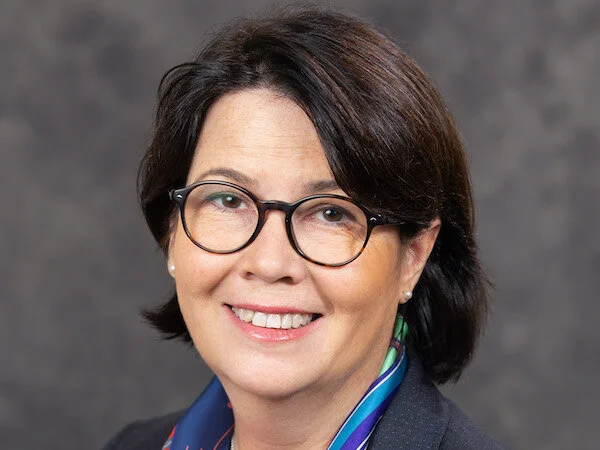Carol Sirou: The Sciences Po toolkit for corporate life
Carol Sirou is an independent board member, the founder and CEO of Safineia Advisors, a boutique consulting practice, and a Sciences Po alumna. This article is part of a series of portraits published in partnership with the Sciences Po American Foundation to show the diversity of Alumni careers throughout the world and especially in the US.
This article was written by Claire Wilson, student in the dual degree program between Sciences Po and Columbia University, and intern at the Sciences Po American Foundation
As a history lover with an interest in studying economics, Sirou affirms that Sciences Po was an obvious choice, “because it really matched with what my interests were at the time.” She also appreciated that the three-year program would give her time to think about what else she might want to pursue. “The first year was a foundation year, and it was only at the end of the first year that we made our choices and decided to go in one direction or the other,” she says. “For me it was the natural fit—an extension of what I had been studying in high school, and it gave me the time to really think about what I wanted to do.”
As a student at Sciences Po, Sirou specialized in economics and finance and particularly enjoyed courses in accounting and microeconomics. “I remember having economics classes in the amphitheater with prominent economists of the time,” she says. “One class was taught by François Hollande, who became the president of France a couple of years later.” After graduating, Sirou did a one-year master’s program at the University of Paris Dauphine specializing in corporate finance. One course on rating agencies sparked her interest, and when she started looking for a job, “Standard & Poor’s, one of the dominant rating agencies in the world, was just opening its French office,” she remembers. “They were looking for talent, so I applied and spent 27 years with them.”
Sirou began her career at Standard & Poor’s as a financial analyst and specialized in different industries including banking and the public sector. She worked her way up the corporate ladder, and at the time of the 2008 financial crisis, Sirou became the CEO of Standard & Poor’s French office. “When I became CEO it all started to make sense,” she remembers. “I was using the things I had learned at Sciences Po, the hard skills, but probably even more of the soft skills—the capacity to analyze and understand a situation, summarize, and focus on key issues.” Sirou adds: “even though it was a very different job, I felt that I had the tools to be effective and to manage.”
““When I became CEO, it all started to make sense : I was using the skills I had learned at Sciences Po !””
When Sirou’s 27-year stint at the firm came to a close, she deliberately chose to seek out a very different career path. “I took that moment to reflect on what was important to me,” she says, “and I decided that I needed diversity and flexibility.” Today, Sirou serves as an independent board member for several French firms, a role that affords her the breadth and diversity she was looking for. “I wanted to be able to engage with different people,” she says. “The different companies I am working with each have business and strategic challenges that are totally different. The people are different, their culture is different, and but they align behind a project.” She also enjoys the flexibility and her ability to have control over both her time and the subjects that she finds important. “My current work forces me to always be relevant,” she adds.
Additionally, Sirou especially enjoys sharing her time between the United States and France. “I enjoy being able to leverage both cultures and hopefully all of their respective strengths,” she says. Cultural diversity is also a quality Sirou admires in her alma mater. “I think it is refreshing that Sciences Po has become so international,” she adds. “When I joined it was an excellent school, and it still is, but it was very French. Now, I think the international focus and global reach is clearly where Sciences Po distinguishes itself from any other academic institution in France and in Europe.”
Throughout her career, Sirou has found “the experience of going through difficult times and being able to help support an organization in adjusting its business model,” highly fulfilling. “At the end of the day, we do not always have the answers,” she adds, “so it is the power of being surrounded by the right people with different skill sets and being able to leverage all of this that makes what I do for a living very exciting.” Sirou also enjoys the opportunity to work with upcoming leaders of the next generation. “I often work with very talented young professionals,” she says. “I am always amazed by their talent, and I appreciate that I can help them become even more effective and grow.”
Reflecting on her time at Sciences Po, Sirou compares her education to a toolkit. “Some of the tools I did not use for years, and there were others that I used immediately,” she says. Thank to Sciences Po, Sirou has never felt unprepared and can simply “think about which tool to pull from my head.” She believes that more than just technical expertise, her Sciences Po education gave her the ability to analyze a situation, decide on a course of action, and then make a decision. “That is probably the biggest asset I have ever received,” she says, “and one you can apply to any subject and to many circumstances that you are faced with in corporate life.”




